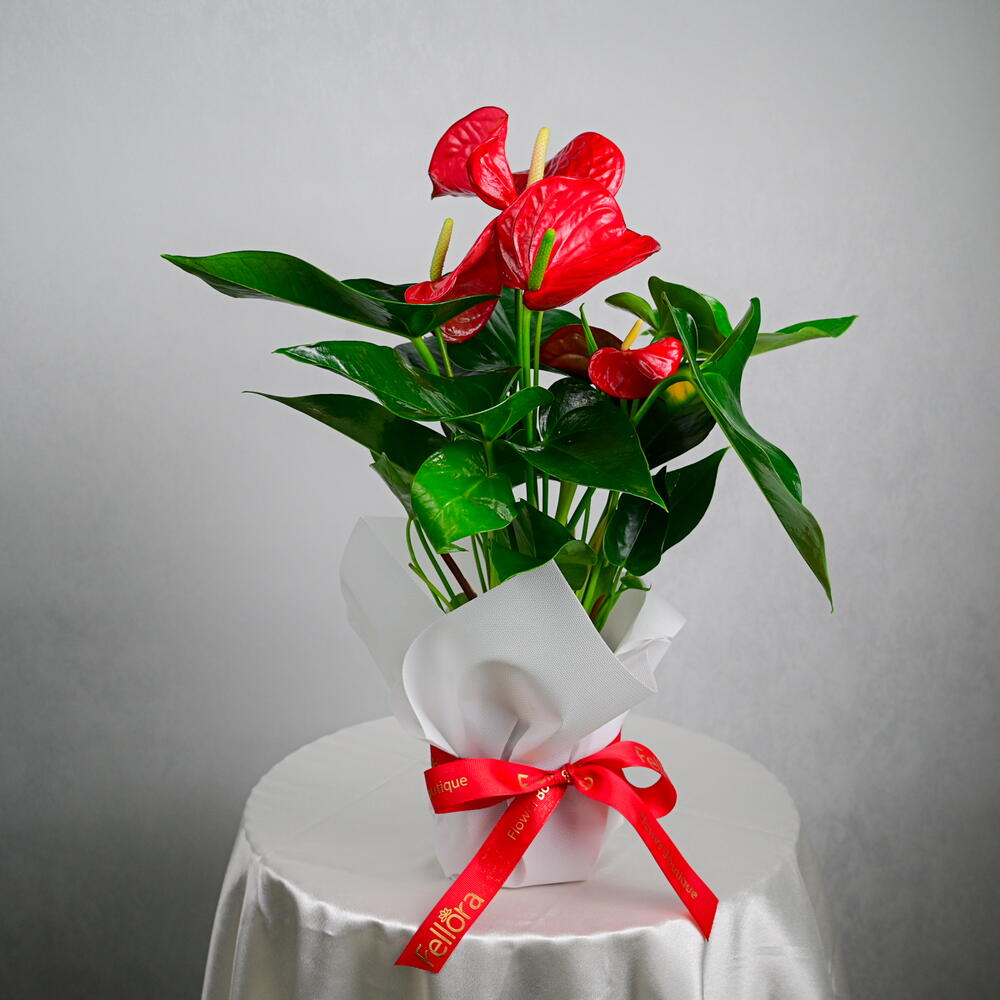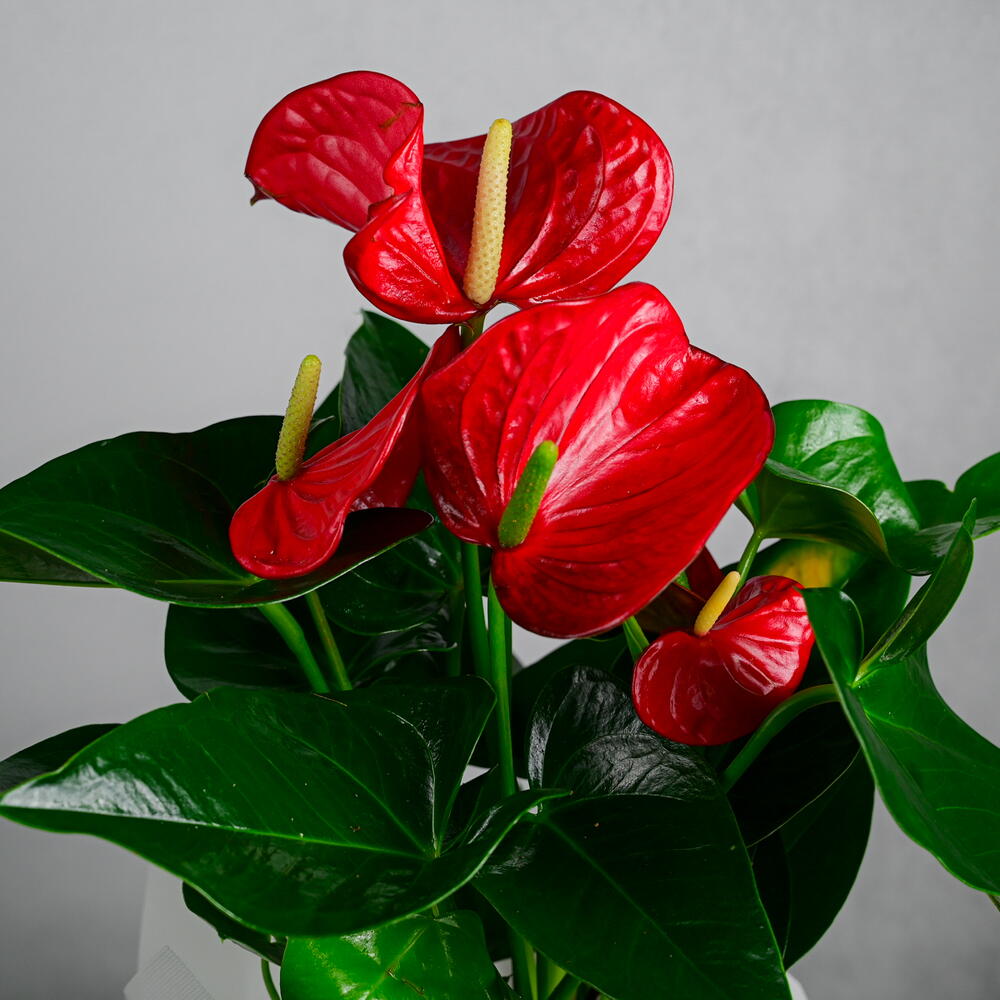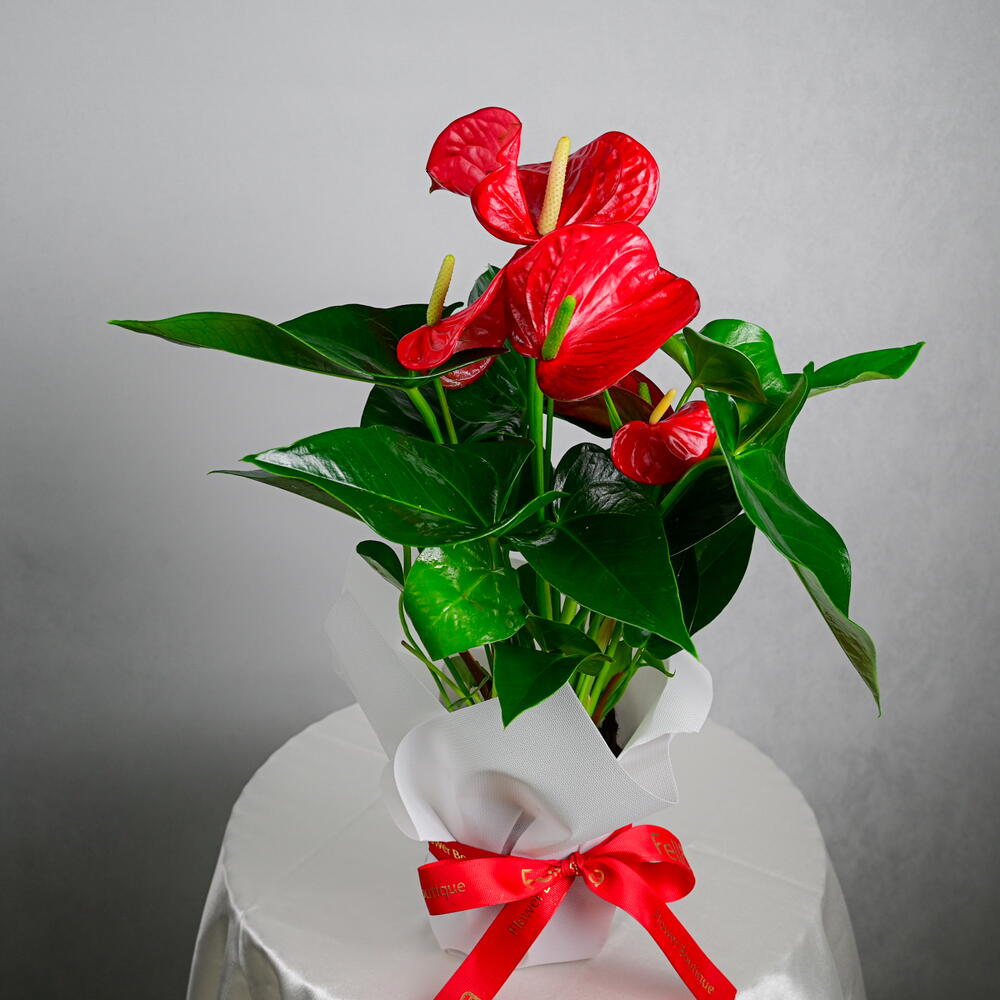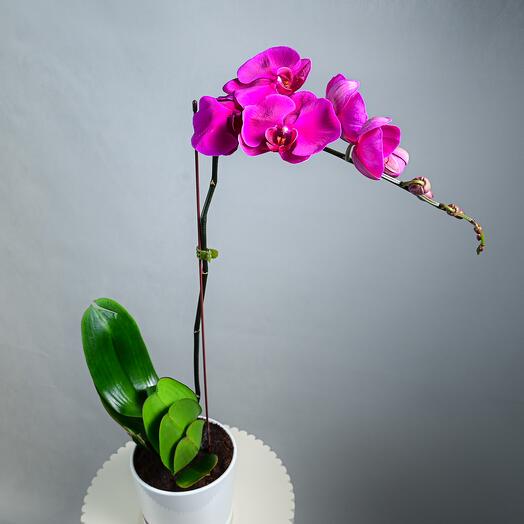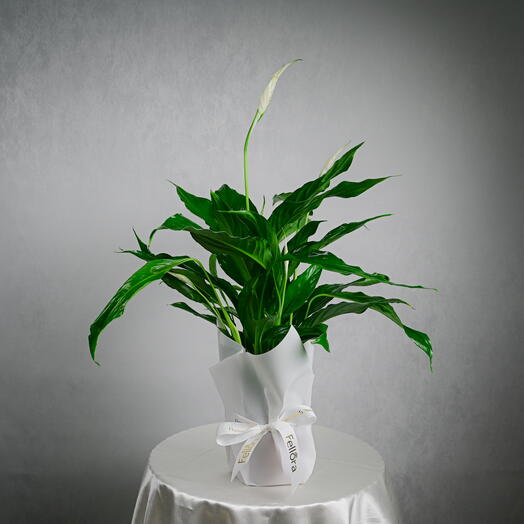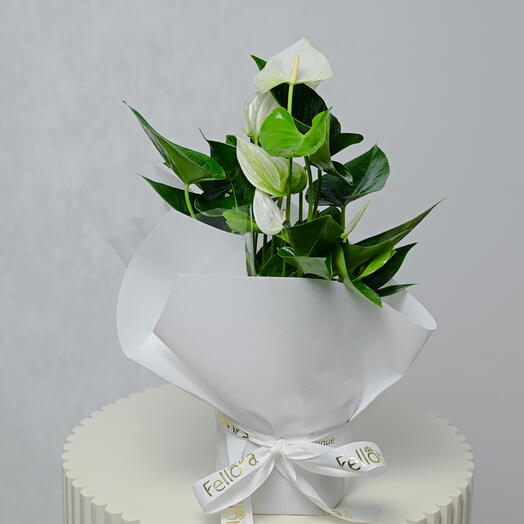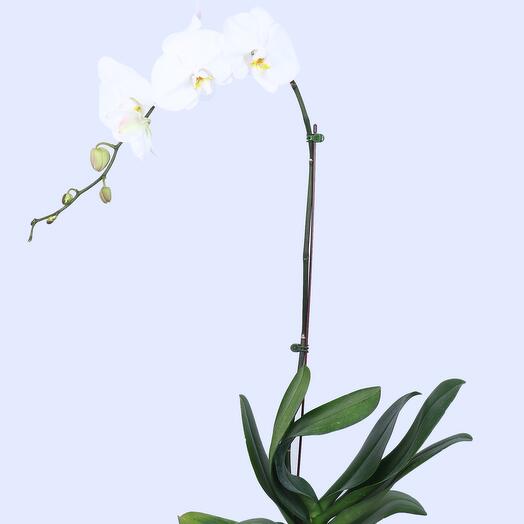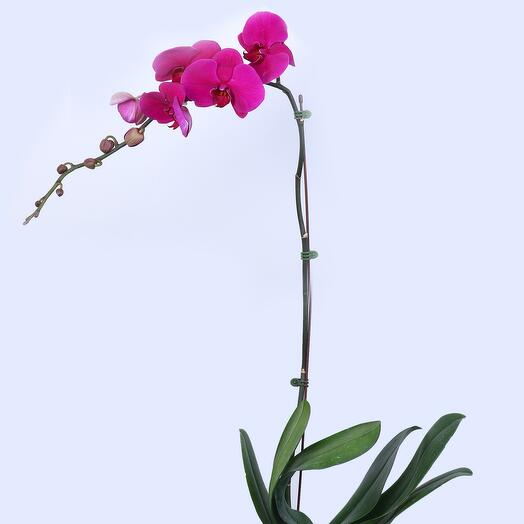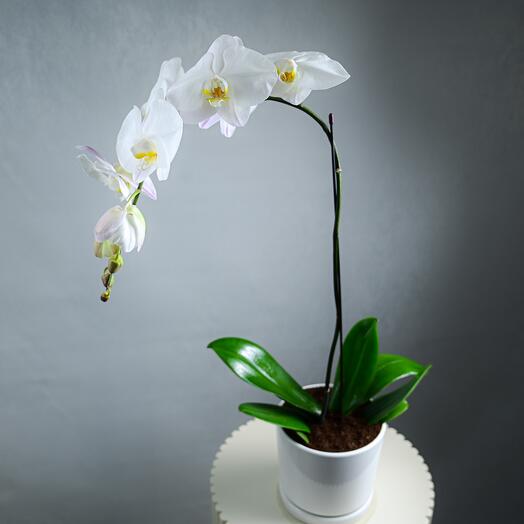Anche altri clienti hanno cercato
The Flamingo Plant, also known as Anthurium Red, is a stunning tropical plant that is native to Central and South America. It is a member of the Araceae family and is known for its striking, heart-shaped leaves and bright red flowers. The plant typically grows to a height of 30-40cm and has a spread of around 20-30cm. The Flamingo Plant is a popular choice for indoor gardening due to its low maintenance requirements and its ability to thrive in a variety of lighting conditions. It prefers bright, indirect light and should be kept away from direct sunlight, which can scorch its leaves. The plant also requires regular watering, but it is important not to overwater it as this can lead to root rot. One of the most striking features of the Flamingo Plant is its flowers, which are bright red and shaped like a heart. These flowers can last for several weeks and are a beautiful addition to any indoor garden.
Guida alla cura
The Flamingo Plant, also known as Anthurium, is a stunning houseplant known for its vibrant, heart-shaped flowers and glossy green leaves. Follow these care tips to keep your Anthurium thriving: Light: Place your Flamingo Plant in bright, indirect light. Avoid direct sunlight, as it can scorch the leaves. It can tolerate low light, but flowering may be reduced. Watering: Water your Anthurium when the top inch of soil feels dry. Be careful not to overwater; ensure the pot has good drainage to prevent root rot. Reduce watering in the winter months when the plant is not actively growing. Humidity: Anthuriums thrive in high humidity. Aim for humidity levels between 60-80%. You can increase humidity by misting the leaves, placing a humidifier nearby, or using a pebble tray with water. Temperature: Keep your Flamingo Plant in a warm environment, ideally between 65-80°F (18-27°C). Protect it from cold drafts and sudden temperature changes. Fertilizing: Feed your Anthurium with a balanced liquid fertilizer every 4-6 weeks during the growing season (spring and summer). Reduce feeding in the fall and winter. Potting Medium: Use a well-draining potting mix, such as a combination of potting soil, perlite, and orchid bark. This ensures proper aeration and drainage. Pruning: Remove any yellow or damaged leaves to maintain the plant’s health and appearance. Pruning will also encourage new growth. Pests: Keep an eye out for common pests such as spider mites, aphids, and mealybugs. If you notice any, treat the plant with insecticidal soap or neem oil. Repotting: Repot your Flamingo Plant every 1-2 years to refresh the potting medium and allow for growth. Choose a pot that is slightly larger than the current one. By following these care tips, your Flamingo Plant (Anthurium) will thrive, bringing beauty and elegance to your space for years to come!
Stock confermato 5 min fa
Flamingo Plant - Red (Anthurium)
- per sapere le spese di consegna
- Riceverai 14.9 bonus
Frequenza di irrigazione
1 volte per settimana
Dimensione
- Larghezza - 15 cm
- Altezza - 40 cm
The Flamingo Plant, also known as Anthurium Red, is a stunning tropical plant that is native to Central and South America. It is a member of the Araceae family and is known for its striking, heart-shaped leaves and bright red flowers. The plant typically grows to a height of 30-40cm and has a spread of around 20-30cm. The Flamingo Plant is a popular choice for indoor gardening due to its low maintenance requirements and its ability to thrive in a variety of lighting conditions. It prefers bright, indirect light and should be kept away from direct sunlight, which can scorch its leaves. The plant also requires regular watering, but it is important not to overwater it as this can lead to root rot. One of the most striking features of the Flamingo Plant is its flowers, which are bright red and shaped like a heart. These flowers can last for several weeks and are a beautiful addition to any indoor garden.
Guida alla cura
The Flamingo Plant, also known as Anthurium, is a stunning houseplant known for its vibrant, heart-shaped flowers and glossy green leaves. Follow these care tips to keep your Anthurium thriving: Light: Place your Flamingo Plant in bright, indirect light. Avoid direct sunlight, as it can scorch the leaves. It can tolerate low light, but flowering may be reduced. Watering: Water your Anthurium when the top inch of soil feels dry. Be careful not to overwater; ensure the pot has good drainage to prevent root rot. Reduce watering in the winter months when the plant is not actively growing. Humidity: Anthuriums thrive in high humidity. Aim for humidity levels between 60-80%. You can increase humidity by misting the leaves, placing a humidifier nearby, or using a pebble tray with water. Temperature: Keep your Flamingo Plant in a warm environment, ideally between 65-80°F (18-27°C). Protect it from cold drafts and sudden temperature changes. Fertilizing: Feed your Anthurium with a balanced liquid fertilizer every 4-6 weeks during the growing season (spring and summer). Reduce feeding in the fall and winter. Potting Medium: Use a well-draining potting mix, such as a combination of potting soil, perlite, and orchid bark. This ensures proper aeration and drainage. Pruning: Remove any yellow or damaged leaves to maintain the plant’s health and appearance. Pruning will also encourage new growth. Pests: Keep an eye out for common pests such as spider mites, aphids, and mealybugs. If you notice any, treat the plant with insecticidal soap or neem oil. Repotting: Repot your Flamingo Plant every 1-2 years to refresh the potting medium and allow for growth. Choose a pot that is slightly larger than the current one. By following these care tips, your Flamingo Plant (Anthurium) will thrive, bringing beauty and elegance to your space for years to come!
4203 valutazioni • 3748 acquisti
Valutazioni e recensioni
Mittente
Questa settimana
Mittente
Questa settimana
Igor Anti
Questa settimana
Mittente
Questa settimana
Prompt and professional online service.
Danubia sousa
Questa settimana
Amazing service ! Outstanding
Segnalare articolo
